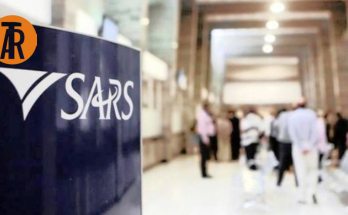Proponents of tax harmonization in the alcoholic industry envisage that it would make economic activities more seamless.
The Beer Association of South Africa has implored the government to ensure tax harmonization in the alcohol industry.
The body made this appeal on behalf of its members, the Craft Breweries Association of South Africa, Heineken South Africa, and South African Breweries when it recently made its submission to the National Treasury.
Also included in the report was the South African Revenue Service on the 2022 Draft Rates Bill and the 2022 Draft Taxation Laws Amendment Bill.
Basa chief executive officer Patricia Pillay said the submission is just one out of numerous planned engagements and submissions in the lead-up to next year’s Budget speech when the excise duties for the 2023/2024 financial year will be announced.
She revealed that the submission centers on the present and past factors that have in one way or the other contributed to the inequality in the application of excise duties within the alcohol industry and which have disfavored the beer industry in particular.
Basa is therefore imploring the government to amend these inequalities to create a more harmonized tax regime within the alcohol industry.
The submission mentions the momentous economic impact made by the beer industry on the country’s economy:
- The beer industry sustains 249 000 jobs, or 1 in every 66 jobs nationwide.
- The industry also contributed R 71 billion in gross value added (GVA) to South Africa’s Gross Domestic Product (GDP) in 2020, or R1 for every R79 of the country’s GDP is accredited to beer-related economic activity. This means the beer industry makes up roughly 1.3% of the country’s GDP.
- Patricia mentioned that beer (at 5% ABV) has the lowest alcohol level when compared to other alcoholic products.
She revealed that the beer industry has also expressed profound intent to further decrease the alcohol content in its products through the introduction of no and low-alcohol beers.
She further stated that despite the beer industry’s reduced ABV content compared to other products and the major economic impact of the sector’s value chain, beer has suffered serious prejudice concerning excise duties, while other products, in particular wine, have been favored.
This mostly manifests in two areas:
- First, while beer is taxed at an excise duty based on the LAA/ABV, wine is taxed at a rate based on liters, irrespective of the ABV.
- Second, while excise duties are currently intended to be a consumption tax, wine is also favored in regards to excise duties on beer being due within an average of 4.5 months before consumption.
Whereas the duties for wine are due within an average of 36 months of actual consumption since wine can be consumed and often best consumed after properly aging.
Here are Basa’s proposals:
- The application of an LAA/ABV Excise Duty System for every alcoholic product that can be excised, which means products with a lower ABV are taxed lower compared to products with a higher ABV.
- Excise duty payment terms of 30/60 days are to be harmoniously applied for all excisable alcohol products. This would allow for a perpetual flow of revenue to the Fiscus and reduce the inequality in the alcohol industry.



